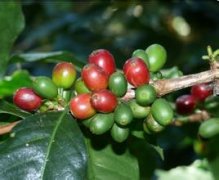The basics of coffee know what caffeine is
Caffeine may be the first thing that comes to mind when it comes to coffee, but what is caffeine? it is estimated that it is difficult for you to give an accurate answer. I have been engaged in coffee work for a few years. I would like to share with you: caffeine is a mild stimulant. there is less caffeine in our daily drinks such as tea, cocoa and chocolate. Caffeine is also found in carbohydrate drinks such as cola and some anesthetics. It can accelerate the metabolism of the human body and keep people clear-headed and sensitive. The refreshing effect of coffee is very popular. Caffeine can stay inside the body for several hours, and the effect on the body is appropriate for each person. Some people will lose sleep after drinking coffee at night, while others will be nervous and overexcited if they drink too much coffee, but many people will not be affected at all.

Once we understand the body's response to caffeine, we can use it to meet our needs. Drinking a cup of delicious coffee before the exam or long-distance driving will certainly reduce fatigue. The caffeine in coffee is insoluble in cold water, but easily soluble in hot water. It will stimulate the cerebral cortex, eliminate drowsiness, enhance the sense of touch and thinking and adjust the function of the heart, but also dilate kidney blood vessels, diuresis and so on. However, caffeine is not limited to coffee. Usually a cup of 100cc coffee contains caffeine 60~65mg, green tea has 200~300mg, black tea has 350~400mg, and cocoa has about 100mg. Excessive caffeine intake is prone to tinnitus, hyperfunction of the heart (the heart beats rapidly, the number of pulses increases), and the pulse is uneven, so you must drink coffee in moderation.
Important Notice :
前街咖啡 FrontStreet Coffee has moved to new addredd:
FrontStreet Coffee Address: 315,Donghua East Road,GuangZhou
Tel:020 38364473
- Prev

Basic knowledge of Coffee to understand the two varieties of Coffee trees
At present, the most important coffee trees in the world are Arabica and Robusta. These two kinds of coffee trees are the two original species of coffee trees, and the quality of coffee beans produced by these two kinds of coffee trees is also better than that of other coffee trees. Ah, Rabica Coffee Tree. The Arabica coffee tree, which originated from Ethiopia in East Africa, accounts for 70% of the world's coffee bean production; the world-famous Blue Mountain Coffee.
- Next

Coffee Health talk about the nutritional value of Coffee
Do not underestimate a small cup of coffee, it can contain a variety of healthy ingredients! Modern medical research points out that coffee beans contain sugars, protein, fat, hydrochloric acid, potassium, crude fiber, water and other nutrients. In addition, coffee also contains caffeine, tannic acid, alkaloids and other beneficial ingredients. Is coffee good or bad for the human body?
Related
- Beginners will see the "Coffee pull flower" guide!
- What is the difference between ice blog purified milk and ordinary milk coffee?
- Why is the Philippines the largest producer of crops in Liberia?
- For coffee extraction, should the fine powder be retained?
- How does extracted espresso fill pressed powder? How much strength does it take to press the powder?
- How to make jasmine cold extract coffee? Is the jasmine + latte good?
- Will this little toy really make the coffee taste better? How does Lily Drip affect coffee extraction?
- Will the action of slapping the filter cup also affect coffee extraction?
- What's the difference between powder-to-water ratio and powder-to-liquid ratio?
- What is the Ethiopian local species? What does it have to do with Heirloom native species?

